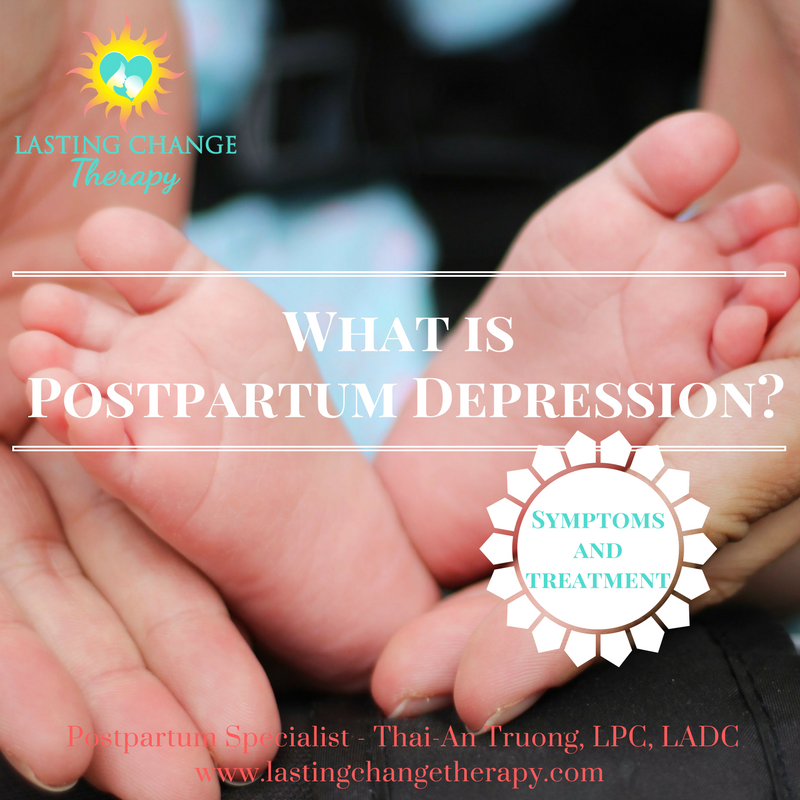Beautiful Journey Reproductive Counseling Center - Questions
Beautiful Journey Reproductive Counseling Center - Questions
Blog Article
Beautiful Journey Reproductive Counseling Center Can Be Fun For Everyone
Table of ContentsThe 10-Second Trick For Beautiful Journey Reproductive Counseling CenterThe 9-Second Trick For Beautiful Journey Reproductive Counseling CenterSome Ideas on Beautiful Journey Reproductive Counseling Center You Need To KnowBeautiful Journey Reproductive Counseling Center - An OverviewGet This Report about Beautiful Journey Reproductive Counseling CenterBeautiful Journey Reproductive Counseling Center Can Be Fun For Everyone

Dealing with psychological health and wellness experts is a great means to find out about postpartum anxiety and how to recoup. Treatment allows women to work through their condition and recognize the progression they make. Therapists can also readjust treatment in response to the female's development. Treatment is a personal and vital means to treat postpartum depression.

The Best Guide To Beautiful Journey Reproductive Counseling Center
There have actually not been definitive studies published that looked especially at folate or various other B vitamins in the treatment of postpartum clinical depression. Take into consideration advising to women who are postpartum to proceed their prenatal vitamin or take a B-100 facility with concerning 1 mg (or 1,000 mcg) of folic acid, or folate.
Adjustment of vitamin D deficiency might play a significant role in the recovery from postpartum clinical depression. Mommies battling with depression should have their 25-OH vitamin D degree examined. Several ladies discover that they need a minimum of 2,000-3,000 IUs of cholecalciferol, which is vitamin D3 (a kind that is extremely easily absorbed) throughout the winter season.
In the summertime, much less oral vitamin D might be needed, depending on the latitude where the mommy lives. perinatal counseling.
The Main Principles Of Beautiful Journey Reproductive Counseling Center

Anticoagulation may be made use of, and it ought to be kept in mind that there exists no global guideline or suggestion for anticoagulation treatment in septic pelvic thrombosis. Preliminary bolus of 60 units/kg (4000 units optimum) adhered to by 12 units/kg/h (maximum of 1000 units/h) is suggested. The aPTT is monitored for 2-3 times the normal value.
Postpartum clinical depression (PPD) is a complex mix of physical, psychological, and behavior modifications that take place in some women after providing birth. According to the DSM-5, a manual used to identify mental illness, PPD is a form of major anxiety that starts within 4 weeks after shipment. The medical diagnosis of postpartum anxiety is based not just on the size of time in between delivery and onset but on the intensity of the clinical depression.
The term defines a variety of physical and emotional modifications that lots of brand-new mommies experience. PPD can be treated with drug and therapy. The chemical changes involve a rapid decrease in hormones after delivery. The actual web link in between this decline and clinical depression is still not clear. What is known is that the levels of estrogen and progesterone, the women reproductive hormonal agents, rise significantly during maternity.
More About Beautiful Journey Reproductive Counseling Center
PPD can happen after the birth of any kind of child, not simply the very first youngster. You can have feelings similar to the child blues-- sadness, anguish, anxiousness, crankiness-- but you feel them much a lot more highly.
When your ability to feature is influenced, you need to see a healthcare copyright, such as your OB/GYN or medical care medical professional. This physician can evaluate you for depression signs and come up with a treatment strategy. If you do not obtain therapy for PPD, symptoms can worsen. While PPD is a serious condition, it can be treated with medicine and therapy.
This illness can happen rapidly, commonly within the initial 3 months after giving birth. Women can shed touch with fact, licensed professional counselor new jersey having acoustic hallucinations (hearing points that aren't in fact happening, like a person talking) and delusions (strongly thinking things that are plainly unreasonable). Aesthetic hallucinations (seeing points that aren't there) are much less typical.
Women who have postpartum psychosis demand treatment right away and almost constantly require medication. Therapy choices include anti-anxiety or antidepressant medications, psychiatric therapy, and involvement in a support team for psychological support and education and learning.
A Biased View of Beautiful Journey Reproductive Counseling Center
Youngsters of moms with postpartum clinical depression are most likely to have problems with sleeping and consuming, sobbing more than normal, and hold-ups in language development. If you have a history of clinical depression, inform your doctor as quickly as you learn you're pregnant, or if you're preparing to come to be expectant.
PPD can take place after the birth of any kind of youngster, not simply the first kid. You can have sensations comparable to the child blues-- sadness, despair, anxiety, crankiness-- yet you feel them much a lot more strongly.
When your ability to feature is affected, you need to see a wellness treatment supplier, such as your OB/GYN or main care doctor. If you do not get treatment for PPD, signs and symptoms can get even worse.
This health problem can happen quickly, commonly within the initial 3 months after giving birth. Ladies can lose touch with fact, having acoustic hallucinations (hearing things that aren't in fact occurring, like an individual speaking) and delusions (highly thinking things that are plainly unreasonable). Aesthetic hallucinations (seeing points that aren't there) are less usual.
The 5-Minute Rule for Beautiful Journey Reproductive Counseling Center
Women who have postpartum psychosis need treatment right away and virtually constantly need medication. Treatment choices include anti-anxiety or antidepressant medicines, psychiatric therapy, and engagement in an assistance team for psychological support and education.
Children of mothers with postpartum depression are more probable to have issues with sleeping and eating, crying more than usual, and delays in language development (reproductive therapist). If you have a background of clinical depression - https://www.producthunt.com/@beaj0urepcc, tell your doctor as soon as you figure out you're pregnant, or if you're planning to conceive
Report this page